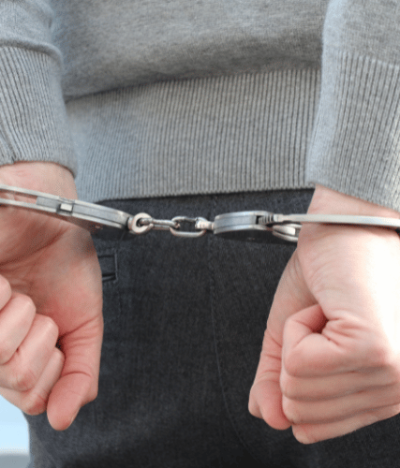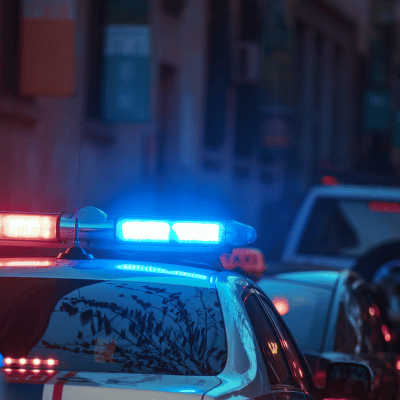In a deeply saddening case out of Palm Beach County, law enforcement officials reported that a mother, identified as Roshawn Gatlin, was arrested after allegedly stabbing her young daughter multiple times. The shocking nature of the incident has raised public concern—not only due to the violent allegations—but because initial information suggests that mental health issues may have played a role.
While the criminal justice system is designed to protect the public and pursue justice, it must also evaluate the mental state of the accused. In Florida, emotionally or psychologically unstable individuals may be eligible for mental health intervention under the Baker Act or substance-related intervention under the Marchman Act. Understanding these legal mechanisms is essential in analyzing the potential defenses and outcomes in this type of criminal case.
The Criminal Charges She May Face
Based on the nature of the allegations, the accused could be charged with:
- Attempted Murder or Attempted First-Degree Murder
- Aggravated Battery with a Deadly Weapon
- Child Abuse Resulting in Serious Bodily Injury
These charges carry severe penalties, including life imprisonment. However, no conviction can be made until a defendant is proven guilty in court or enters a plea. Every individual is presumed innocent until proven otherwise, and the circumstances surrounding the incident must be thoroughly examined—particularly those involving mental competency and intent.
Mental State and Potential Legal Defenses
A central question in this case will likely be whether the defendant had the mental capacity to form criminal intent. In Florida, criminal intent—or “mens rea”—is a required element in serious charges such as attempted murder.
Possible Defenses Include:
1. Insanity Defense
To assert an insanity defense, the defense must show the accused did not understand the nature or consequences of their actions due to a severe mental disorder. This is not an easy defense to prove and requires expert psychiatric evaluation, medical history, and evidence of impaired thought processes at the time of the incident.
2. Diminished Capacity
Even if the legal threshold for insanity is not met, diminished mental capacity can affect the severity of charges and sentencing. If the defendant suffered a psychotic episode, delusions, or a break from reality, the court may consider alternative outcomes such as mental health treatment over imprisonment.
3. Baker Act Considerations
Florida’s Baker Act allows for involuntary psychiatric evaluation when an individual poses a risk to themselves or others. If the defendant was suffering from acute mental instability, she may have been subject to Baker Act procedures either before or after arrest. This could significantly impact the direction of the case and lead to hospitalization, competency evaluations, and mental health court proceedings.
4. Marchman Act Involvement
If substance abuse contributed to altered mental status, the Marchman Act may apply. This law allows the court to mandate assessment and treatment for individuals impaired by drugs or alcohol to the point of being a danger to themselves or others.
Competency to Stand Trial
Before criminal proceedings can move forward, the court must determine whether the defendant is legally competent. This involves assessing whether she understands the charges against her and can assist in her own defense. If found incompetent, the defendant may be placed in a treatment facility until competency is restored.
Why Mental Health Context Matters
Violent criminal charges are serious, but when symptoms of untreated mental illness are present, they may fundamentally alter the legal process. In some cases, mental health issues can impact:
- Pre-trial detention decisions
- Eligibility for mental health diversion programs
- Sentencing outcomes
- Conditions of incarceration
There are also broader societal questions about mental health access, early intervention, and how law enforcement responds when an individual exhibits signs of mental distress.
The Role of a Criminal Defense Attorney
Cases involving allegations of violence—especially those involving children—are among the most emotionally charged and legally complex. A knowledgeable criminal defense lawyer will:
- Examine whether the defendant’s constitutional rights were upheld
- Investigate her mental state at the time of the incident
- Request mental health evaluations when appropriate
- Argue for treatment, not punishment, if mental illness is a central factor
- Challenge any weaknesses or inconsistencies in the prosecution’s case
Rabideau Law: Experienced in Complex & High-Stakes Criminal Defense
When mental health intersects with criminal charges, the stakes are extraordinarily high. Rabideau Law understands the gravity of these cases and is prepared to fight for fair treatment under the law, explore all available defenses, and advocate for the rights and dignity of every client.
If you or a loved one has been charged with a serious offense and mental health may be a factor, it is critical to seek legal representation immediately.
Contact Rabideau Law today to discuss your case confidentially.

Frequently Asked Questions (FAQ)
1. Can mental illness be used as a defense in a criminal case in Florida?
Yes. If a defendant was suffering from a severe mental illness at the time of the alleged offense and could not understand the nature or wrongfulness of their actions, a criminal defense attorney may assert an insanity defense under Florida law. This defense requires expert psychiatric evaluation and must meet strict legal standards.
2. What is the difference between the Baker Act and an insanity defense?
The Baker Act allows for involuntary mental health evaluation and treatment when someone poses a danger to themselves or others. It is not a legal defense. The insanity defense is a courtroom strategy that argues the defendant was legally insane at the time of the offense. The Baker Act may be used during or after arrest, but it does not determine guilt or innocence.
3. What happens if a defendant is found incompetent to stand trial?
If the court finds that a defendant does not understand the legal proceedings or cannot assist their attorney, they may be declared incompetent to stand trial. In this case, the court will order treatment—often in a secure mental health facility—until competency is restored.
4. Can substance abuse be considered in a criminal defense under the Marchman Act?
The Marchman Act addresses serious substance abuse issues and allows for involuntary treatment, but it is not itself a criminal defense. However, if drug or alcohol impairment significantly affected the defendant’s mental state, it may be used to support arguments for reduced charges, mitigation, or court-ordered treatment instead of prison.
5. What penalties could someone face if convicted of attempted murder in Florida?
Attempted first-degree murder in Florida is a life felony, carrying penalties of up to life in prison. However, if mental illness or lack of intent can be demonstrated, the charges or sentencing may be reduced. A skilled defense attorney may argue for alternative outcomes such as psychiatric treatment.
6. Why is it important to have a defense attorney experienced in mental health-related cases?
Cases involving mental illness are highly complex and require an attorney who understands both legal strategy and clinical evaluation. An experienced lawyer will coordinate psychiatric assessments, challenge the prosecution’s claims of intent, and fight for outcomes that prioritize treatment and justice.
Call Today
If you or a loved one has been arrested or charged with a crime in Florida, you need strong legal representation on your side to protect your future. The stakes are high and a conviction can haunt you for life. Don’t leave your fate in the hands of an overworked public defender. Hire a former prosecutor who knows how to get charges reduced or dismissed.
At The Law Offices of Michael T. Rabideau, we provide aggressive and strategic criminal defense for clients across South Florida. As a former Assistant State Attorney, founder Michael Rabideau knows the ins and outs of the local justice system and how to build an effective defense.
With over 20 years of experience exclusively defending the accused, we have successfully represented hundreds of clients facing charges such as:
— Assault & Battery
— Child Abuse & Child Neglect
— Computer Crimes
— Domestic Violence
— Driving Violations
— Drug Crimes Lawyer
— DUI
— Expungements
__ Federal Crimes
— Firearms Offense
— Fleeing & Eluding
— Hit & Run
— Juvenile Crimes
— Manslaughter
— Marijuana Possession Lawyer
— Murder
— Probation Violations
— Resisting Arrest
At The Law Offices of Michael T. Rabideau, we conduct thorough investigations, employ expert witnesses, leverage technical defenses, negotiate with prosecutors, and handle every aspect of the pretrial and trial process. We are not afraid to take your case to trial if it is in your best interest.
Don’t Leave Your Future to Chance – Schedule a Free Consultation Today
We also understand the far-reaching consequences of criminal charges, even for first-time offenders. That is why we work tirelessly both in and out of the courtroom to protect your rights and limit the impact on your record.
A customized defense strategy can make all the difference between a guilty verdict and a dismissal. Don’t leave your future up to chance or assume you have no options. Schedule a free consultation today with The Law Offices of Michael T. Rabideau to discuss your situation confidentially with an experienced criminal defense attorney.
Affordable Payment Plans and Flexible Appointments Available
We make our services accessible by offering reasonable rates as well as personalized monthly payment plans to fit your budget. We also accommodate evening and weekend appointments at all three of our offices in West Palm Beach, Wellington and Boca Raton.
Don’t Wait to Get the Representation You Deserve
The Law Offices of Michael T. Rabideau are here for you when you need us most. Our sole focus is protecting your rights and resolving your criminal case as favorably as possible. Don’t go through this fight alone. With an aggressive defense lawyer on your side, you can avoid harsh penalties so this mistake doesn’t ruin your entire future.







